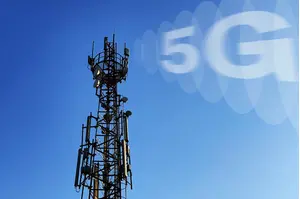11 months after launch, 5G subscriptions hit 1.8 million
Nigeria's 5G Revolution: 1.8 Million Subscriptions in Just 11 Months - An in-depth look at the rapid growth of 5G technology in Nigeria, transforming the country's mobile landscape and accelerating digital connectivity.
The 5G Revolution in Nigeria: 1.8 Million Subscriptions and Counting


The rise of fifth-generation (5G) mobile subscriptions in Nigeria has been nothing short of remarkable. In just eleven months since its launch in the country, the number of 5G subscriptions has surged to an impressive 1.8 million. These figures, based on data from the Nigerian Communications Commission (NCC) portal, reveal the rapid adoption of this advanced technology.
As of August 2023, 0.83 percent of Nigeria's total mobile subscriptions, which stood at 220.36 million, were on the 5G network. This translated to approximately 1.83 million mobile subscriptions. The growth of 5G subscriptions was especially striking on a month-on-month basis, with a staggering increase of 537.95 percent. July 2023 saw 5G subscriptions at 286,698, and by August 2023, the number had surged to 1,828,997.8438. This surge was noteworthy, considering a slight 0.079 percent decline in the overall number of mobile subscriptions in the country.
However, despite this remarkable growth, 5G subscriptions remained a minority within the Nigerian mobile landscape. As of July 2023, only 0.13 percent of total mobile subscriptions were on the 5G network, compared to the dominance of 2G subscriptions, which accounted for 132.92 million.
The journey of 5G in Nigeria officially commenced in 2019 when the NCC announced its plans to test 5G technology for three months before approval and rollout. It wasn't until December 2022 that the NCC officially auctioned its first two 5G spectrums. The winners of this auction were MTN Nigeria and Mafab Communications, with Airtel Africa receiving its license about a year later. MTN Nigeria launched commercial 5G services in September 2022, covering major cities in the country. Mafab, on the other hand, has been slower to roll out its 5G services.
Airtel Africa, despite entering the 5G landscape later, has also commercially launched its 5G services, further contributing to the technology's growth in Nigeria. To boost adoption, Airtel Africa partnered with Samsung to provide affordable 5G-enabled devices.
While 5G is not expected to become the dominant network in Nigeria in the near future, it is poised to accelerate the digitization of the country's economy with its high-speed connectivity and potential for connecting various devices. Experts anticipate that 4G adoption will precede 5G, with the latter's substantial growth expected in the latter part of the decade.
The expansion of 5G networks in Nigeria is seen as a significant step towards realizing the digital transformation of the nation's economy. With its capacity to enhance connectivity and speed, 5G holds the potential to revolutionize various sectors. Although Africa, as a whole, lags behind in 5G adoption, it is projected to catch up gradually. The GSMA predicts that 5G adoption in Africa will grow from around one percent of total connections to eight percent by 2026. Furthermore, it is expected to reach 22 percent of total connections by the end of the decade, paving the way for a new era of connectivity and innovation on the continent.



